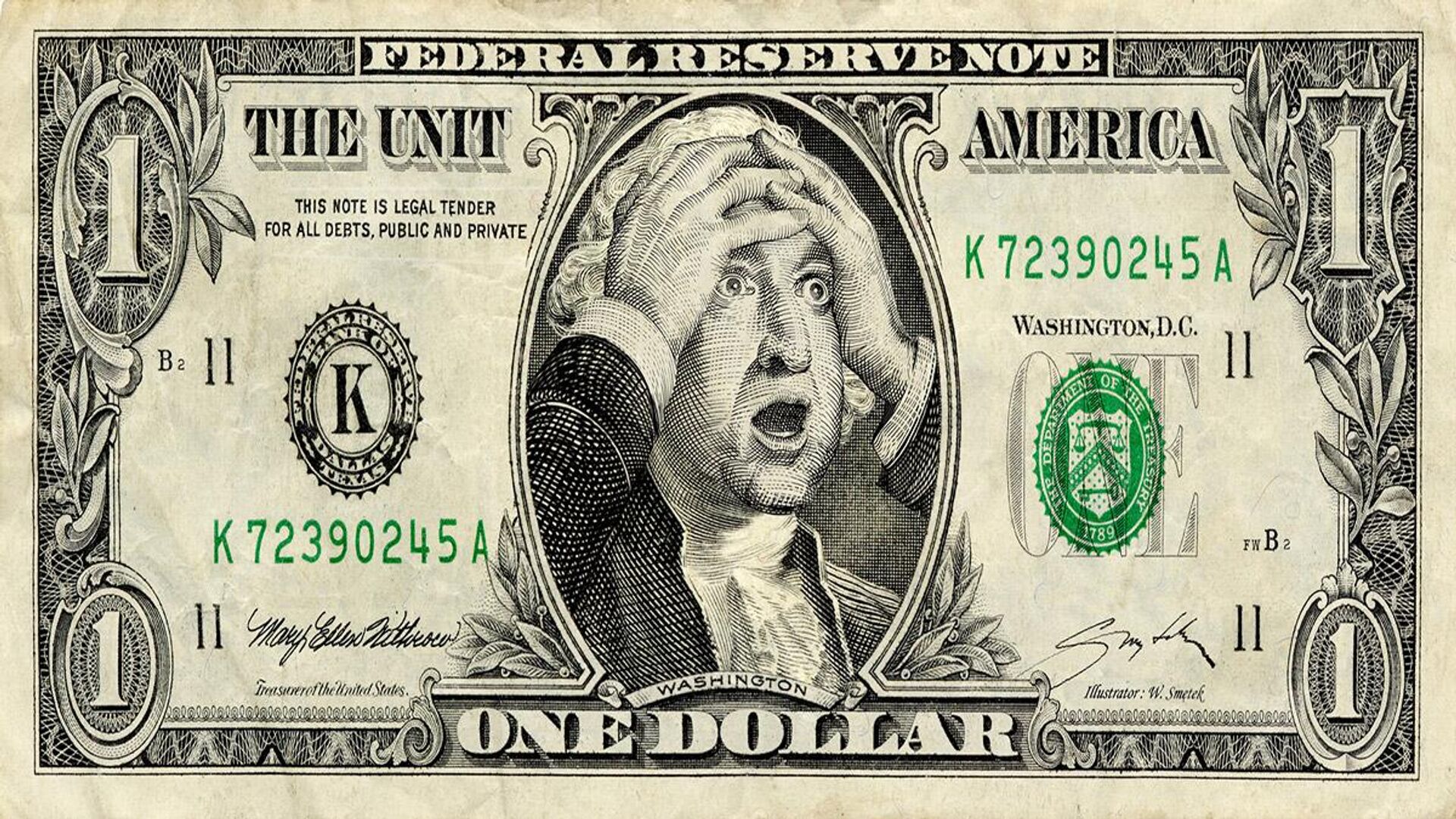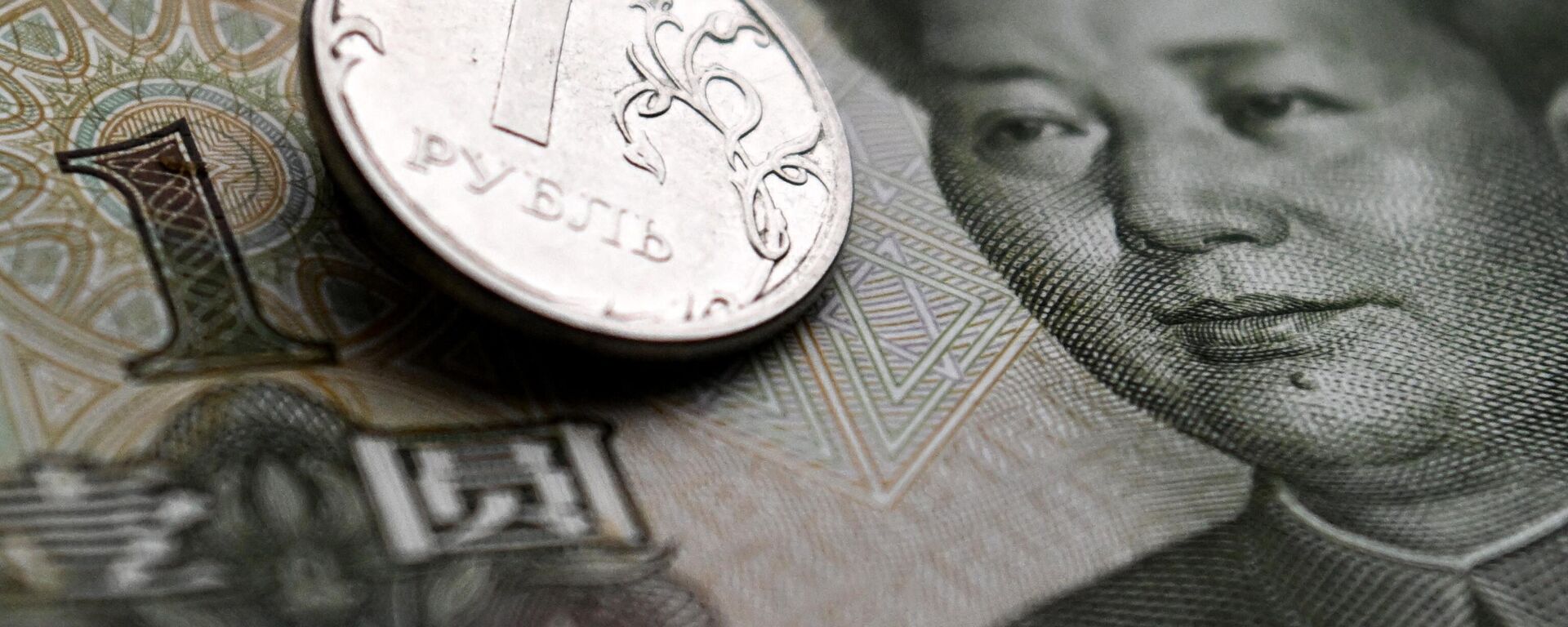https://sputnikglobe.com/20230330/musk-blames-feds-policy-for-eroding-us-dollars-value-1108955255.html
Musk Blames Fed's Policy for Eroding US Dollar’s Value
Musk Blames Fed's Policy for Eroding US Dollar’s Value
Sputnik International
American billionaire investor Elon Musk has blamed the US Federal Reserve’s tight monetary policy for hurting the US dollar’s position as a global safe-haven currency.
2023-03-30T11:50+0000
2023-03-30T11:50+0000
2023-03-30T11:50+0000
economy
elon musk
us federal reserve
dollar
https://cdn1.img.sputnikglobe.com/img/07e6/08/1d/1100117738_0:0:1200:675_1920x0_80_0_0_777d80d1ec1106458e6d4df5f4a3359e.jpg
The tech investor was responding to an analysis by Genevieve Roch-Decter, chief executive of the Canadian capital market advisory firm Grit Capital, who warned that the US dollar was slowly losing its reserve currency status. The Fed hiked key interest rates to nearly 5% in March in a bid to stem the soaring inflation that is reportedly running about three times higher than the pre-pandemic average. Musk said that the adverse effect of the Fed’s interest rate policy was exacerbated by "excess government spending, which forces other countries to absorb a significant part of our [US] inflation." The online debate over the Fed’s decision to make the most aggressive interest rate moves in decades followed an announcement of a deal by China and Brazil that will allow them to trade in their national currencies and drop the dollar as an intermediary. China also completed its first yuan-settled LNG trade with France on Tuesday, while its yuan-denominated trade with Russia has spiked massively since last year. Roch-Decter argued that markets were shifting to the yuan in a sign of China’s growing global influence.
https://sputnikglobe.com/20230323/yuan-settlements-to-curtail-wests-influence-boost-russia-africa-trade-expert-predicts-1108713827.html
https://sputnikglobe.com/20230213/is-the-us-economy-really-on-track-to-revival-devil-is-always-in-the-details-1107383806.html
Sputnik International
feedback@sputniknews.com
+74956456601
MIA „Rossiya Segodnya“
2023
Sputnik International
feedback@sputniknews.com
+74956456601
MIA „Rossiya Segodnya“
News
en_EN
Sputnik International
feedback@sputniknews.com
+74956456601
MIA „Rossiya Segodnya“
Sputnik International
feedback@sputniknews.com
+74956456601
MIA „Rossiya Segodnya“
federal reserve, american economy, us dollar, safe-haven currency, tight monetary policy
federal reserve, american economy, us dollar, safe-haven currency, tight monetary policy
Musk Blames Fed's Policy for Eroding US Dollar’s Value
MOSCOW (Sputnik) - American billionaire investor Elon Musk has blamed the US Federal Reserve’s tight monetary policy for hurting the US dollar’s position as a global safe-haven currency.
"Serious issue. US policy has been too heavy-handed, making countries want to ditch the dollar," Musk wrote on social media.
The tech investor was responding to an analysis by Genevieve Roch-Decter, chief executive of the Canadian capital market advisory firm Grit Capital, who warned that the US dollar was slowly losing its reserve currency status.
The Fed hiked key interest rates to nearly 5% in March in a bid to stem the soaring inflation that is reportedly running about three times higher than the pre-pandemic average.
Musk said that the adverse effect of the Fed’s interest rate policy was exacerbated by "excess government spending, which forces other countries to absorb a significant part of our [US] inflation."

13 February 2023, 16:50 GMT
The online debate over the Fed’s decision to make the most aggressive interest rate moves in decades followed an announcement of a deal by China and Brazil that will allow them to trade in their national currencies and drop the dollar as an intermediary.
China also completed its first yuan-settled LNG trade with France on Tuesday, while its yuan-denominated trade with Russia has spiked massively since last year. Roch-Decter argued that markets were shifting to the yuan in a sign of China’s growing global influence.




